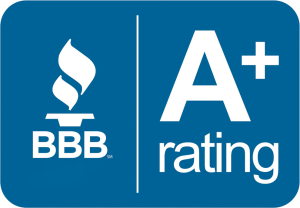Bankruptcy F.A.Q.
While every case is different, the standard rate for a Chapter 7 filing is $1195 plus court fees of $338. There is also a $25 fee for mandatory credit counseling and budgeting classes. This total cost can be an overall savings of hundreds of dollars over other firms. The LaVelle Law Offices understands that you are going through a difficult time financially, and we try to be reasonable with our attorney fees, so you can afford to hire an attorney to help you with the complicated bankruptcy process.
The Standard rate for a Chapter 13 Bankruptcy is $3500. The fees for a Chapter 13 Bankruptcy can vary, however, due to individual circumstances and the fact that Chapter 13 Bankruptcy requires the attorney to work with you over the period of several years.
A Chapter 7 Bankruptcy often takes only 3-4 months from petition filing to discharge and a Chapter 13 Bankruptcy typically takes 3-5 years. In a Chapter 13 Bankruptcy, you are paying your creditors back over time, through a budget created by yourself and your attorney (under the bankruptcy rules) whereas a Chapter 7 bankruptcy often discharges all of your unsecured debt at the end of a few months. There are specific income qualifiers for a Chapter 7 bankruptcy and there are limits on the amount of property you can protect, so people with higher incomes may not qualify for a Chapter 7 filing and those who own houses may not want to risk losing their house in Chapter 7 bankruptcy.
The short answer is NO. You get to keep at least $30,800 of you stuff and maybe more. Click HERE for more info on protecting your stuff in bankruptcy.
The Means Test is a an examination of your finances to determine if you qualify to file Bankruptcy. If you make less than the State Median Income you don’t have to complete the means test; you automatically qualify under the income guidelines to file a Chapter 7 (other, non income based qualifiers may apply)
To avoid taking the means test, you must have an income less than the median income for your household size. The median income for California is $60,360 for households with one person, $79,271 for two person households, $88,235 for three person households, and $101,315 for four person households (as defined by the US Census Bureau).
Yes. All of it. Part of your eligibility for filing bankruptcy will be based on your income, therefore you have to report all of your income including contributions from family and friends, self employment, retirement distribution…tell us about it all and we will let you know what we need to report.
Probably not. The court would have to approve this and they rarely do. Your attorney can help you with strategies to build up you credit after you file bankruptcy, but holding on to a credit card through bankruptcy is generally not allowed because it is seen as favoring a creditor over another creditor (which is frowned upon). The court also frowns upon placing you in debt right after your bankruptcy.
Probably. If you have a car loan, you can ask the loan company if you may re-affirm your loan and continue it past bankruptcy. Unless this would put a heavy financial burden on you and/or this is for a luxury car, you may be able to re-affirm this contract. If the court does not approve this re-affirmation, you will likely be able to keep you car simply by continuing to make the monthly payments.
Your attorney can help you with strategies on building up your credit after your bankruptcy is completed. For example, you can apply for secured credit cards, pay them off on time, build up your credit line and then apply for a car loan, pay that off over time, etc. The effect the bankruptcy has on your credit diminishes over time and with proper credit management and a steady income, you can build your credit back up to an acceptable level within a year or two, and to a good score within a few years.
There are certain activities that you should be aware, might raise a suspicion by the Trustee and Court. If you have engaged in any of these activities in the recent past (within one year), your case might be dismissed and you might be prosecuted for fraud. These activities include but are not limited to: lying about your income or monthly bills on a credit application; concealing property or money by hiding it or giving it away at below market value (or for free); making large purchases right before filing bankruptcy when you knew you would be filing.
Keep in mind that you are signing your bankruptcy papers under the penalty of perjury, testifying that everything in those papers is true. If you intentionally mislead the court, hide assets or are in any way untruthful and fully disclose your financial affairs your case could be dismissed and you could be prosecuted for fraud.

